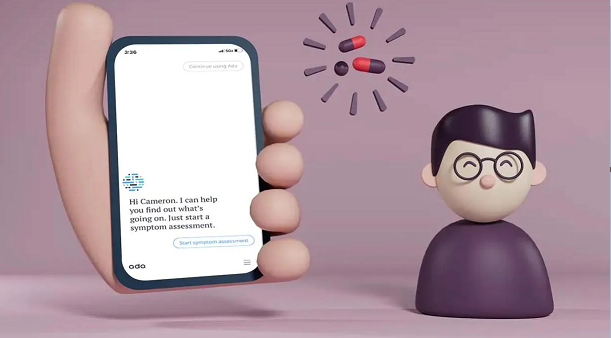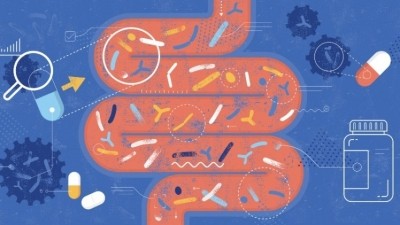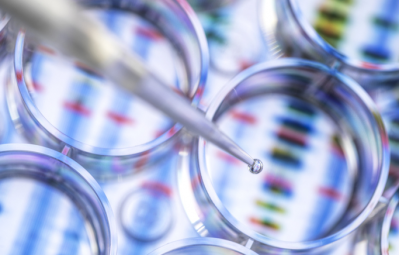Bayer Consumer Health looks to tie-up precision health innovation with existing supplement brands

The firm announced the formation of its Precision Health Group in late May.
It said that the priority was in developing products that enabled people to take greater control of their personal health through digital solutions.
It plans to work with start-ups and other digital health providers, and at the same time, upskill Bayer’s existing digital capabilities.
“In our industry, we already see ground-breaking opportunities to use data, technology, and science to make self-care more precise and more personal than ever before.
“We think the future of self-care is increasingly precision health. Precision health enables people to take ownership of their health by providing health data and improving or preventing unfavourable health conditions,” said Heiko Schipper, Bayer Consumer Health president.
Speaking to NutraIngredients-Asia, Aquil Harjivan, R&D Head – Digital Health, said that the precision health group would look to develop a variety of products.
This will range from physical diagnostics, including epigenetic testing, fast screening of conditions, providing services such as telehealth, developing software solutions, to providing personalised nutrition, such as vitamins, minerals, and supplements.
"At its most general, our Precision Health Group focuses on providing consumers with tools and solutions across their full healthcare journey.
"More specifically, it encompasses education, diagnosis, treatment, and prevention. It empowers consumers to manage their health more proactively, or to practise better reactive care and achieve superior health outcomes. That’s what’s behind the idea of personalisation and precision health," he said.
As such, one of the plans is a tie-up of Bayer’s precision health innovations with its flagship health supplement brands, such as pregnancy care brand Elevit and products catered to healthy ageing.
“We are looking to understand what are the biggest demand spaces that our brands can bring to consumers and patients. Pregnancy, healthy ageing, etc. are just two areas where we want to drive personalisation. We hope to see that come to life in the next couple of years."
One of the reasons to do so is because the firm could tap on existing consumer trust in the brands when introducing its new precision health products and services.
"Direct-to-consumer precision health tools need to be trusted and credible for people to want to use them. And that's the beauty of our brands – they enjoy that trust, credibility and recognition, and also have very strong footprints in their markets. We can leverage that strong brand equity as a foundation to offer precision solutions that our consumers trust.
"In the future, depending on what's right for consumers and for the market, we may look to adjacencies. But for now, we’re focussing on the opportunities our brands offer."
The company has identified eight core markets for its precision health business, which include China, Australia in the Asia-Pacific region.
"We are looking at South Korea and Japan, which are very tech savvy markets to understand consumer behaviour and technology development. Australia and China are markets that we have key brands and we believe we can win.
"We recently did a pilot program with Elevit and a diagnostic test on the e-commerce platforms to understand consumer uptake, behaviour, and so on that gave us great learnings on new business models," he said.
Three key reasons for entering precision health
Harjivan pointed out three reasons for venturing into the precision health sector, namely demand from the consumers, the needs of the healthcare industry, and the sector's potential to grow in the upcoming decade.
First, the company observed that consumers were increasingly interested in taking charge of their health.
“Consumers are looking to take better care of themselves. People are more informed about healthcare and have access to more information than ever before, so they are hungry to take charge of their health."
Although consumers are still relying on the health care professionals, he believes that the relationship between the two is not longer one where the health care professionals are “more superior” but one where both are of “equal” status.
On the other hand, there is demand for proactive preventive care against the backdrop of an overburdened healthcare system.
“COVID shone a big spotlight on healthcare systems and the challenges they face, specifically in terms of having enough doctors to take care of patients, and the consequences when systems are overburdened. COVID demonstrated that the need for preventive, proactive care is greater than ever."
Third, based on the company’s research, it believes that precision health will make 10 to 20 per cent of the consumer health care industry in the next decade.
"From a business opportunity perspective, we looked at the external technology landscape to see how it’s evolving and where it’s going. We believe that precision health will make up about 10 to 20 per cent of the consumer health care industry within the next 10 years.
"So, from a business share perspective, it makes sense to tap into that growth, and so there's definitely a need to move in that direction."
Existing projects
So far, some examples of Bayer’s precision health projects include its work with ADA Health, where the latter's artificial intelligence-based symptom assessment was embedded into several of Bayer’s consumer health brands, such as Canesten, Aspirin, and Aleve to help customers better understand their symptoms and how they could be treated.
Earlier this year, Bayer also launched the first step of a new heart health ecosystem in the United States with an innovative heart risk assessment powered by HUMA.
The assessment is fully digital and gives consumers a personal risk assessment of developing cardiovascular disease without blood tests or physical examination.
Technologies of interest
Asked the technologies that would be of interest to the firm’s precision health business, Harjivan highlighted the importance of artificial intelligence (AI), as well as the firm’s interest in mixed reality and rapid screening tech.
"AI works on many levels. It works to identify and build better products, and also helps us to drive our precision health approach.
"AI can take big datasets and the data we gather from these products and services, and drives us to provide personalised recommendations and insights into one’s health profile.
"AI will be present throughout the end-to-end funnel no matter what we do, because data is the backbone of precision health."
Beyond AI, the company is looking at mixed reality solutions, especially for managing conditions such as mental health and chronic pain.
"Apple has just announced the launch of Vision Pro, which I think is a an interesting development as mixed reality starts shaping our lives.
"I don't think it's going to be a full virtual reality world or the metaverse completely immersed in healthcare. But I do think there are opportunities there, particularly for mental health, pain and other chronic conditions that require management in different ways."
Another area is rapid screening tech for diagnostics that are accurate, holistic, and affordable for the users.
"Today, you can buy direct-to-consumer diagnostics equipment from about US$200. But they're very individualised to a specific area and aren’t holistic. We want to make products and services that are more affordable, practical and informative than today’s solutions."
Lastly, there will be research conducted to understand digital biomarkers from wearables.
"Significant investment will be allocated to R&D to mine data, enabling an understanding of digital biomarkers as a proxy of health or disease, as well as combining data sets to enable personalised health insights."



















